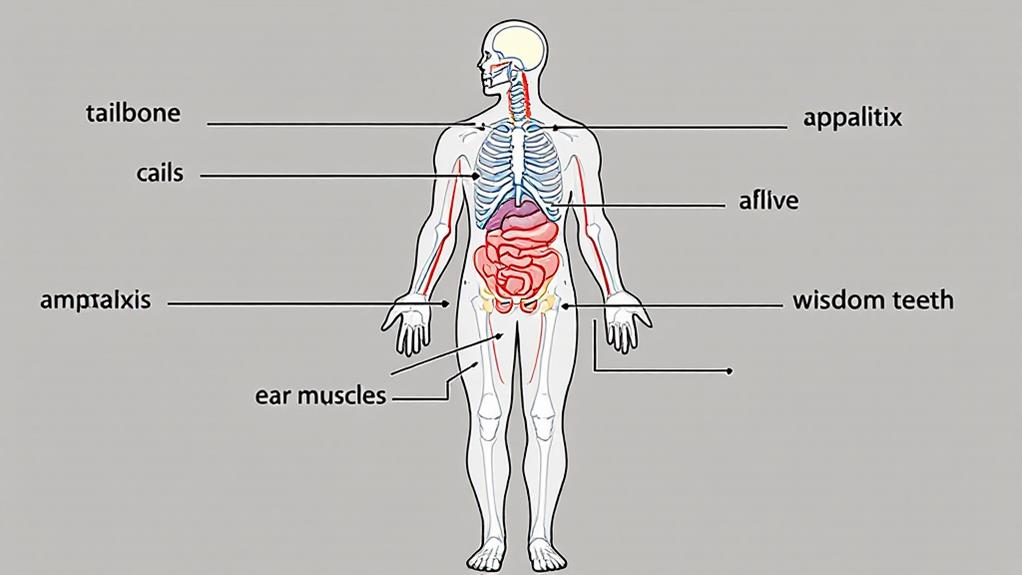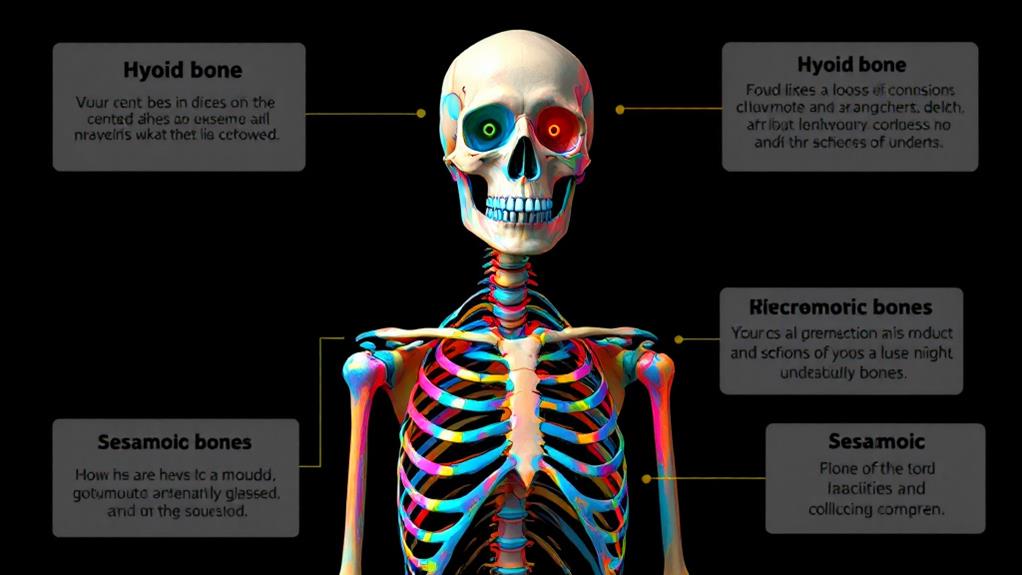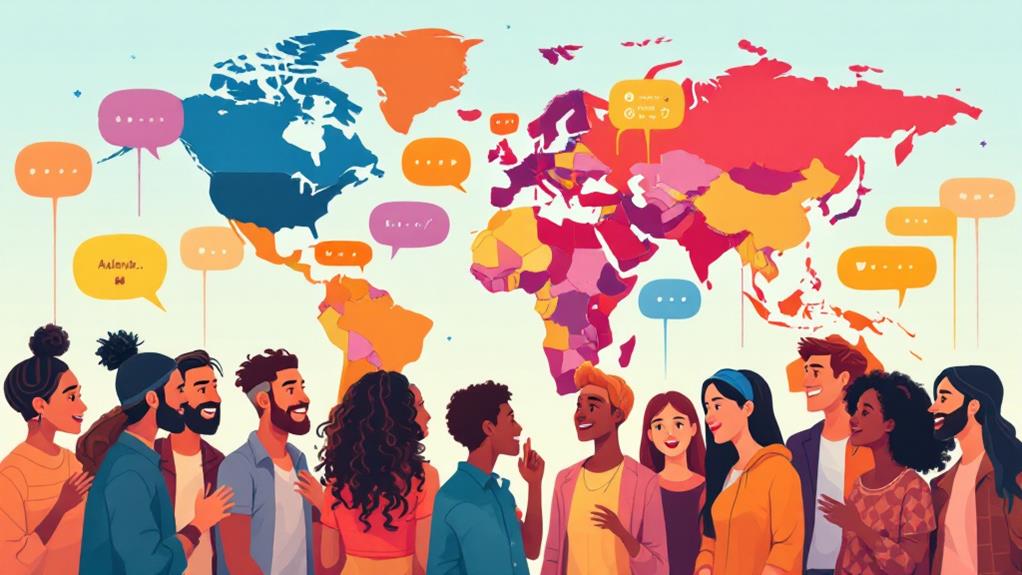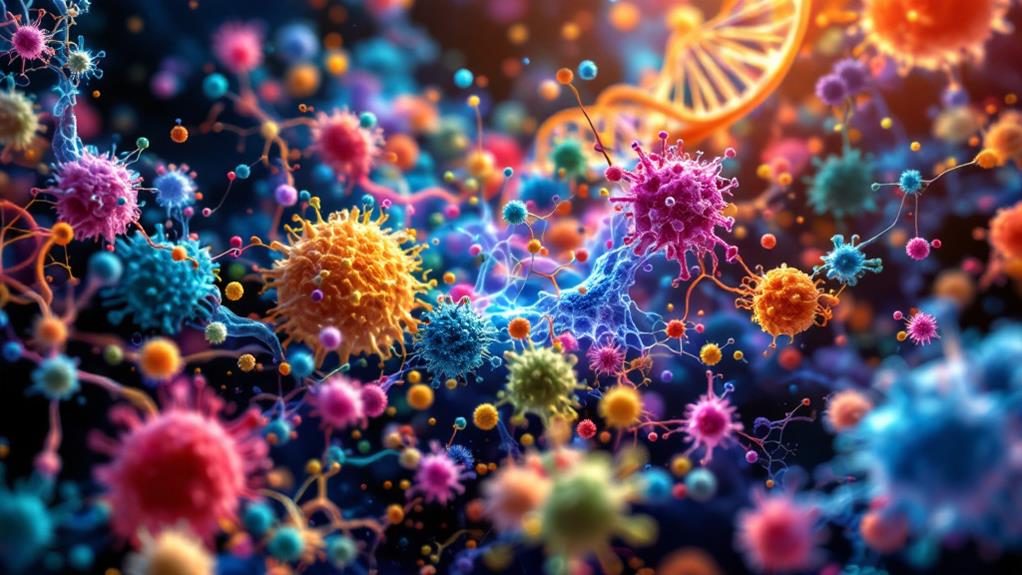Fascinating Facts About Blood Types: What You Need to Know

You'll find blood types are fascinating. They're determined by antigens on red blood cells, with the main types being A, B, AB, and O, each potentially being Rh positive or negative. Type O negative is a universal donor, while AB positive can receive all blood types. Blood type even goes beyond transfusions; it might affect your health risks or dietary needs, and could hold clues to your ancestry. Rare types like Rh-null can pose unique challenges due to scarce donors. Understanding these can influence how you perceive health, ancestry, and much more along the path ahead.
Understanding Blood Type Basics
Blood type basics are fundamental to understanding how blood transfusions work and why they're important in medical settings. Knowing your blood type isn't just about curiosity; it's significant when you're in a medical situation that requires a transfusion. Blood types are determined by the presence or absence of specific antigens on the surface of red blood cells. The main blood types are A, B, AB, and O, and each can be positive or negative based on the presence of the Rh factor.
Blood type inheritance plays an important role in determining your blood type. It's like a genetic lottery where your parents pass down genes that decide your blood type. For instance, if both parents have type A blood, you could inherit type A or O. Understanding this helps predict potential blood types for offspring and highlights why some family members share the same type while others don't.
Blood type testing is simple and usually involves a quick blood sample. This test identifies your type by mixing your blood with antibodies that react differently depending on your antigens. Knowing your blood type can be life-saving, ensuring you receive the right transfusion when needed.
The Science of Blood Groups
Delving into the science of blood groups reveals a fascinating world where genetics and immunology intersect. You might question the roots of blood group inheritance and how it shapes your unique blood type. It all begins with your genes—specifically, the ABO and Rh genes. These genes determine if you have blood type A, B, AB, or O and if your Rh factor is positive or negative. Each parent passes down one allele from each gene, and their combination decides your blood type.
Now, let's investigate blood type evolution. Blood groups are more than just letters and symbols; they've evolved over thousands of years. This evolution is closely tied to human migration and adaptation. As humans dispersed across different environments, their immune systems adapted to new pathogens, contributing to the diversity of blood groups we see today. For instance, type O is more common in areas historically plagued by malaria, providing some resistance to the disease.
Understanding these intricate details about blood groups highlights how your blood type isn't just a medical identifier. It's a story of your ancestry and how humans have adapted over time, offering a glimpse into our past and biological resilience.
Blood Type Compatibility
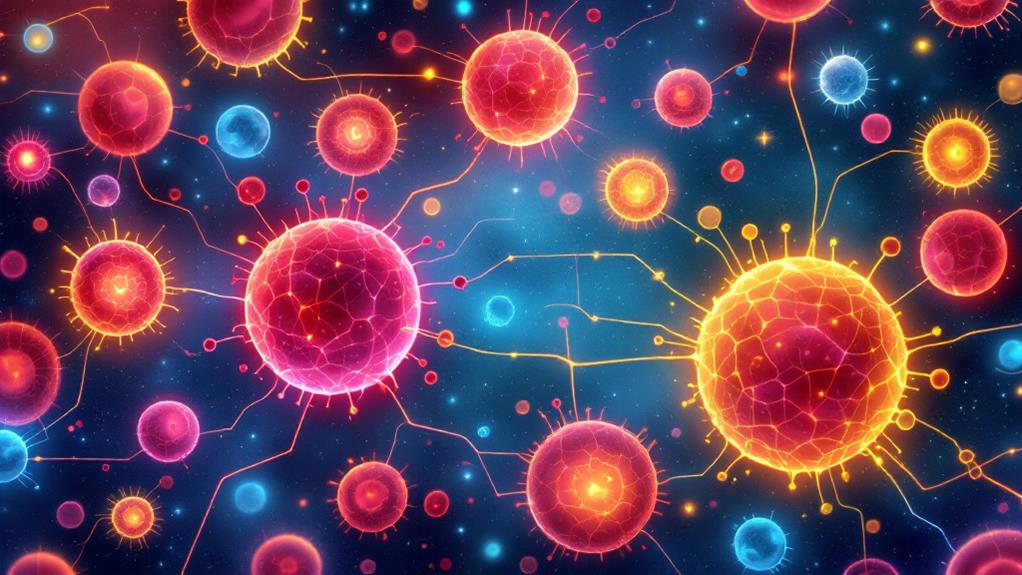
In relation to blood type compatibility, you might wonder how these groups interact during a transfusion. It's essential to match the donor's blood type with the recipient's to prevent adverse reactions. For instance, Type O negative is a universal donor, meaning anyone can receive it. If you have Type AB positive, you're a universal recipient, so you can receive any blood type. Understanding this is significant for safe blood donation practices.
Blood type compatibility isn't just significant for transfusions but also during pregnancy. If you're pregnant, your doctor might discuss Rh factor compatibility. If you're Rh-negative and your baby is Rh-positive, it can cause complications such as hemolytic disease of the newborn. They might recommend an injection of Rh immunoglobulin to prevent these issues.
Knowing your blood type can help during emergencies and inform your decision to donate blood. Blood banks often need specific types, so your contribution could save lives. Regardless of you're considering blood donation or planning a family, understanding blood type compatibility is crucial. It guarantees safe medical procedures and helps you make informed decisions about your health and the health of others.
Rare Blood Types Explained
While understanding common blood type compatibility is vital, there's a fascinating world of rare blood types that often goes unnoticed. You might be aware of the usual suspects—A, B, AB, and O—but did you know some blood types are so rare that only a handful of people have them? These rare types can make blood transfusions quite challenging. Unlike universal donors with O negative blood, individuals with rare blood types don't have the flexibility to receive blood from just anyone.
Imagine needing a transfusion and realizing that only one in a million people could be your match. That's the reality for some. For instance, the Rh-null blood type, known as the "golden blood," is so scarce that fewer than 50 people worldwide are known to have it. This makes finding donors nearly impossible without a global network.
Rare blood types aren't just about the Rh factor, though—they can also involve uncommon antigens not found in the ABO system. When someone with a rare blood type needs a transfusion, hospitals often have to coordinate with international blood banks to locate a match, ensuring that life-saving rare transfusions are feasible.
Health Implications of Blood Types
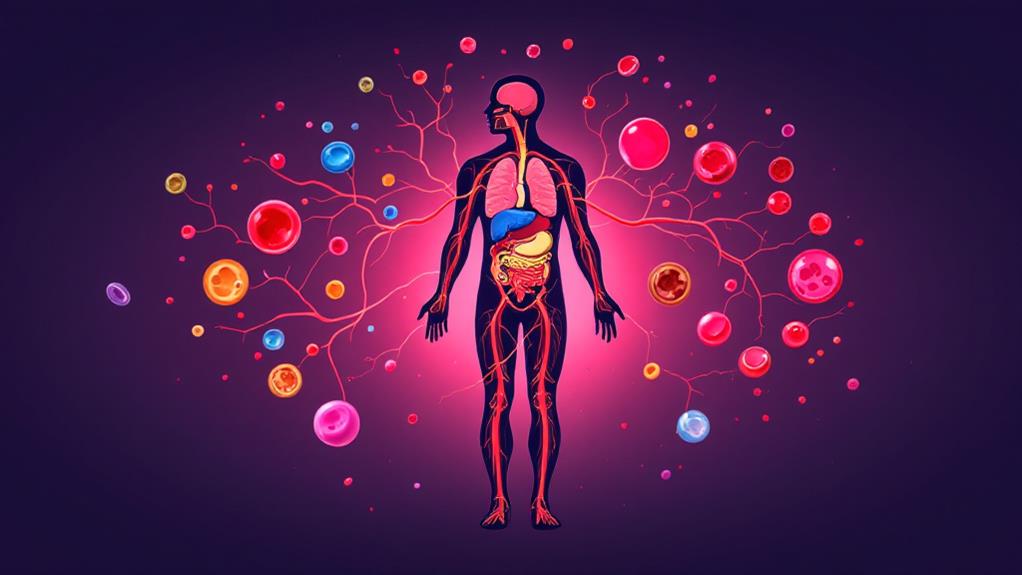
In relation to your health, blood type can play an unexpected role in determining certain risks and benefits. Each blood type—A, B, AB, and O—carries unique antigens, which can influence how your immune system responds to different threats. For example, research suggests that people with type O might have a lower risk of heart disease, while those with type A could be more prone to certain cancers. This means your inherited blood type can subtly shape your health landscape.
The concept of blood type psychology suggests that your blood type might even impact your personality and stress response. While not scientifically conclusive, some cultures believe that different blood types are linked to specific personality traits. For instance, type A individuals are often thought to be more organized and calm, while type B is seen as creative and passionate.
Understanding blood type inheritance helps you anticipate potential health implications not just for yourself, but for future generations. Knowing your family's blood type history could offer insights into possible health risks. While it's important to keep in mind that blood type is just one factor, it's an intriguing piece of your health puzzle.
Blood Types and Diet
Exploring how blood type can influence your health opens the door to understanding its potential impact on dietary choices as well. Blood type diets suggest that your blood type can dictate which foods are best suited for you, potentially enhancing digestion and energy levels. For instance, if you're Type O, a high-protein diet rich in lean meats and fish might be more beneficial. On the other hand, Type A individuals could thrive on a vegetarian diet, focusing on fresh, organic foods.
Here's a breakdown of possible dietary guidelines based on blood types:
- Type O: Emphasize meat, fish, and vegetables while minimizing grains and dairy due to your digestive tolerance.
- Type A: Favor a plant-based diet, incorporating plenty of fruits, vegetables, and whole grains.
- Type B: Enjoy a balanced diet that includes meat, dairy, grains, and vegetables, but limit chicken and corn.
- Type AB: A combination approach, blending foods recommended for both Type A and Type B, can be effective.
These blood type diets may offer a personalized approach to nutrition, but remember, dietary restrictions should always be considered alongside professional medical advice to guarantee they meet your individual health needs.
Blood Types and Disease Risk
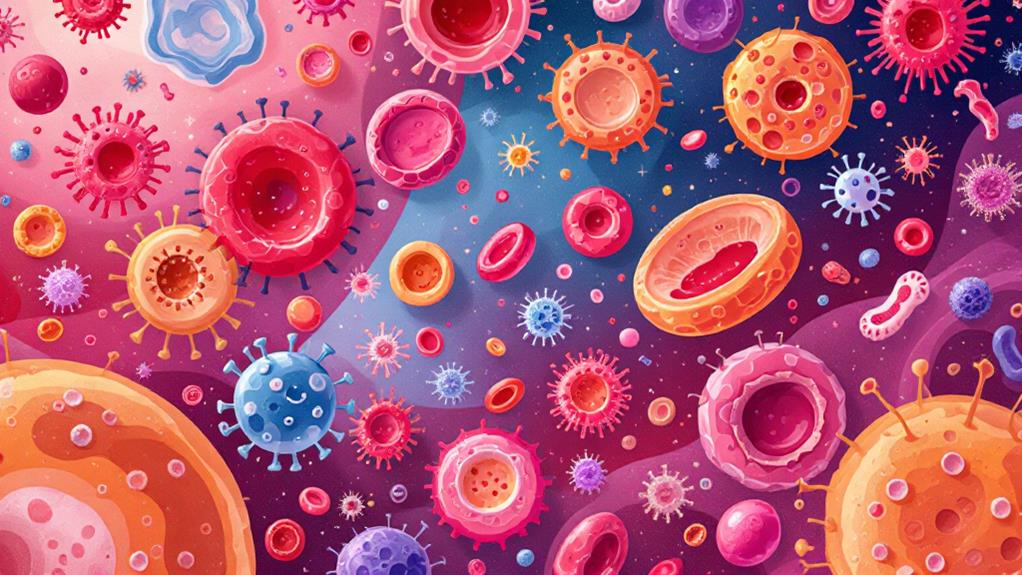
Have you ever wondered how your blood type could influence your health beyond just diet? It turns out, your blood type might affect your susceptibility to certain diseases. For instance, research suggests that individuals with type O blood may have a lower risk of heart disease but might be more prone to ulcers. On the other hand, those with type A blood could face a higher risk of certain cancers. These associations highlight the intriguing role of blood type inheritance, where your blood type isn't just a genetic trait but a potential health indicator.
Your blood type evolution may have occurred as a response to different environmental pressures, including disease exposure. This evolutionary aspect suggests that certain blood types might have developed resistance to specific illnesses, providing an adaptive advantage. For example, type B is more common in areas historically affected by malaria, possibly offering some protection against the disease.
Understanding your blood type can be a valuable tool in evaluating your health risks. While it's not the sole determinant, knowing your blood type could help you take proactive steps in disease prevention and management. It's a fascinating intersection of genetics, evolution, and modern medicine that continues to be investigated.
Global Distribution of Blood Types
Across the globe, blood types are distributed in fascinating patterns that reflect historical migrations and environmental adaptations. You might think that blood types are evenly spread, but they're not. Certain regions have higher concentrations of specific blood types due to evolutionary pressures and population movements. Understanding this global distribution can debunk some blood type myths and highlight how cultural beliefs have shaped perceptions about blood.
Here's how blood types vary around the world:
- Type O: It's the most common globally, especially prevalent in Central and South America. This prevalence is often linked to ancestral survival advantages in malaria-prone areas.
- Type A: More common in Europe and Australia, many believe this blood type is linked to ancient agricultural societies, reflecting an adaptation to different diets and environments.
- Type B: You'll find higher frequencies in Asia, particularly in China and India. This pattern might be associated with nomadic cultures and their adaptive strategies.
- Type AB: The rarest globally, AB is more frequent in regions where populations with A and B types have intermixed, such as in parts of South Asia.
Recognizing these patterns can help dispel blood type myths and appreciate the cultural beliefs tied to them.
